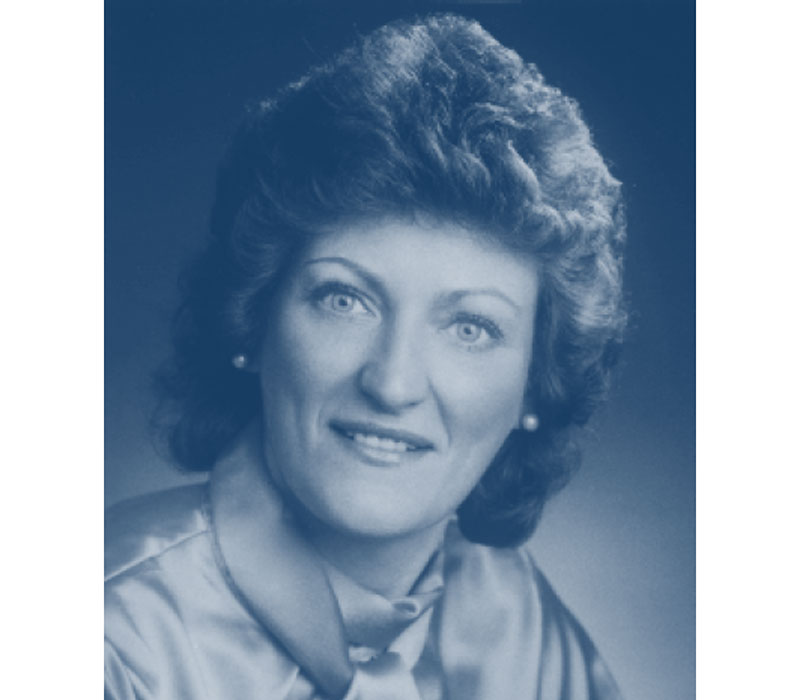Educational Workshop Improves Patient-Perceived Knowledge About Their Disease
Patient education can improve interactions with their healthcare team and provide coping mechanisms for the psychosocial effects of metastatic breast cancer, according to study findings presented at the San Antonio Breast Cancer Symposium on December 8, 2018.
- Read more about Educational Workshop Improves Patient-Perceived Knowledge About Their Disease
- Add new comment
HPV 9-Valent Vaccine Approved for People Aged 27–45

In October 2018, the U.S. Food and Drug Administration expanded the approved use of the human papillomavirus (HPV) 9-valent vaccine to include women and men aged 27–45 years. Previously, the vaccine had been approved for males and females aged 9–26 years, but the expanded approval was granted after the application had undergone priority review.
Tailored Education Improves Patient Satisfaction and Comprehension
Throughout the course of treatment, patients with breast cancer receive a significant amounts of information from their healthcare team. Researchers at the University of Colorado School of Medicine assessed and revamped the educational materials from the facility’s Memorial Radiation Oncology Department to achieve a patient comprehension of key treatment-related concepts of 75%. They found that although some educational concepts remained unmemorable or improperly emphasized, overall trends in comprehension indicated that a patient-tailored approach led to better satisfaction and outcomes, according to the findings presented at the San Antonio Breast Cancer Symposium on December 8, 2018.
Manage Afatinib’s Adverse Events to Keep Patients on Treatment

Ongoing therapy with afatinib—an oral, irreversible ErbB family blocker—for as long as it is effective and tolerable is considered first-line treatment for metastatic non-small cell lung cancer in patients with EGFR mutations. In their article in the October 2018 issue of the Clinical Journal of Oncology Nursing, Edwards, Adan, Lalla, Lacouture, O’Brien, and Sequist discussed the most common adverse events (AEs) associated with afatinib and their real-life experiences managing them in clinical practice to keep patients on therapy.
ONS Past President Sandra Schafer Leaves a Legacy of Compassionate Leadership

From her patients to her colleagues to the entire cancer care community, ONS Past President Sandra Lee Schafer, RN, MN, AOCN®, made everyone she touched feel special, inspiring and motivating a generation of oncology nurses in advancing care for patients with cancer. Schafer passed away on December 7, 2018, but her legacy of compassion and care lives on.
- Read more about ONS Past President Sandra Schafer Leaves a Legacy of Compassionate Leadership
- Add new comment
Trastuzumab Remains Standard HER2+ Breast Cancer Therapy Despite Cardiac Risks
Trastuzumab can improve disease-free survival (DFS) and overall survival (OS) in patients with human epidermal growth factor receptor 2-positive (HER2+) breast cancer. Although some studies suggest that short-term treatment (less than one year) may reduce cardiac toxicity and cost without compromising outcomes, the results of a new study presented at the San Antonio Breast Cancer Symposium on December 8, 2018, disagree.
- Read more about Trastuzumab Remains Standard HER2+ Breast Cancer Therapy Despite Cardiac Risks
- Add new comment
Bipartisan Drug Pricing Bill; Freshman Democrats; Medical Cannabis Concerns

As efforts continue to drive down the soaring costs of prescription medications, Senators Chuck Grassley (R-IA) and Ron Wyden (D-OR) proposed a bipartisan bill looking to close loopholes used by pharmaceutical companies to drive up profits. The bill would give the Department of Health and Human Services the ability to address companies that misclassify products to pay lower rebates.
- Read more about Bipartisan Drug Pricing Bill; Freshman Democrats; Medical Cannabis Concerns
- Add new comment
Study Identifies Novel Triplet Therapy for HR+/HER2+ Breast Cancer
Researchers from the University of Colorado Denver Young Women Breast Cancer Translational Program in Aurora identified a potential triplet combination for the treatment of hormone receptor-positive (HR+) human epidermal growth factor receptor 2-positive (HER2+) breast cancer: HER2-targeted small molecule inhibitor tucatinib, CDK4/6 inhibitor palbociclib, and selective estrogen receptor blocker fulvestrant. They presented the findings at the San Antonio Breast Cancer Symposium on December 7, 2018.
Highly Emetogenic Chemotherapy Still Contributes to Potentially Avoidable Adverse Events
The Centers for Medicare and Medicaid Services (CMS) implemented an oncology outcome measure to assess the quality of care and determine outpatient hospital payment (OP-35: Admissions and Emergency Department Visits for Patients Receiving Outpatient Chemotherapy). The measure assesses 30-day postchemotherapy rates of inpatient or emergency department (ED) events deemed “potentially avoidable” because of an association with any of the 10 CMS-defined toxicities: anemia, dehydration, diarrhea, fever, nausea, emesis, neutropenia, pain, pneumonia, or sepsis. Researchers sought to assess those events when linked to highly emetogenic chemotherapy (HEC) in patients treated with anthracycline plus cyclophosphamide (AC), carboplatin, or cisplatin. They presented the findings at the San Antonio Breast Cancer Symposium on December 7, 2018.
- Read more about Highly Emetogenic Chemotherapy Still Contributes to Potentially Avoidable Adverse Events
- Add new comment
Social Support May Play a Role in Treatment Adherence
Many women discontinue adjuvant endocrine therapy (AET) because of adverse events (AEs), and only half remain adherent at five years. Researchers from the University of Southern California, Los Angeles, found that continued social support for those women may improve AET adherence. They presented the findings at the San Antonio Breast Cancer Symposium on December 7, 2018.





